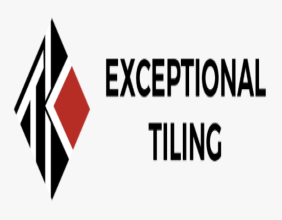Highlights
- Honda Motor Co. Ltd. (HMC) relocates next-generation Civic hybrid production from Mexico to Indiana.
- Tariff challenges on imports from Mexico and Canada drive a change in production strategy.
- Domestic manufacturing advantages support supply chain efficiency and operational control.
The automotive sector remains a cornerstone of global transportation and commerce. Innovations in production methods and adjustments in trade policies continuously reshape the industry. Honda Motor Co. Ltd. (NYSE:HMC) plays a significant role in this arena, with its operations spanning diverse markets and influencing worldwide mobility and logistics.
Production Relocation
Recent trade policy developments have led to a notable change in manufacturing strategy by Honda Motor Co. Ltd. (NYSE:HMC). The company has shifted the production of its next-generation Civic hybrid from a facility in Mexico to a plant located in Indiana. Originally scheduled to commence operations in Mexico in two thousand twenty-seven, production will now begin in Indiana in May two thousand twenty-eight. This move comes in response to a tariff rate of twenty-five percent imposed on imports from Mexico and Canada.
Tariff Challenges and Strategic Response
The imposition of tariffs on goods from North American neighbors has necessitated a reconfiguration of the production network. Governments employ such tariffs to safeguard domestic industries and adjust trade balances. The twenty-five percent charge on imports from Mexico and Canada has compelled Honda Motor Co. Ltd. (NYSE:HMC) to restructure its manufacturing plans. Shifting production to Indiana offers a direct response to these tariff challenges while aiming to manage manufacturing costs effectively.
Domestic Supply Chain Benefits
Relocating production to Indiana brings several advantages in domestic supply chain integration. Operating within the United States facilitates streamlined logistics, reduces transit distances, and enhances collaboration with local suppliers. This decision aligns with a focus on improving operational efficiency and responsiveness to domestic market demand. Sourcing materials and components from regional providers contributes to minimizing delays and supporting a more efficient production process.
Operational Adjustments
Transitioning production operations involves comprehensive adjustments in workforce management, training, and technological implementation. The move to a domestic facility has required modifications in production scheduling and quality control protocols. State-of-the-art manufacturing techniques have been integrated to support efficiency and maintain product quality. Enhanced automation and refined process controls are being deployed to meet modern production standards. Closer coordination between engineering teams and suppliers reinforces adherence to strict manufacturing criteria and operational timelines.
Industry and Market Implications
The reconfiguration of production facilities by Honda Motor Co. Ltd. (NYSE:HMC) reflects a broader trend within the automotive industry as companies modify strategies in response to evolving trade policies. Aligning manufacturing operations with current trade conditions strengthens the operational base and addresses tariff-related challenges. This development underscores the importance of adaptability in the face of shifting economic environments, contributing to a robust supply chain and reliable production framework within a dynamic industry.




